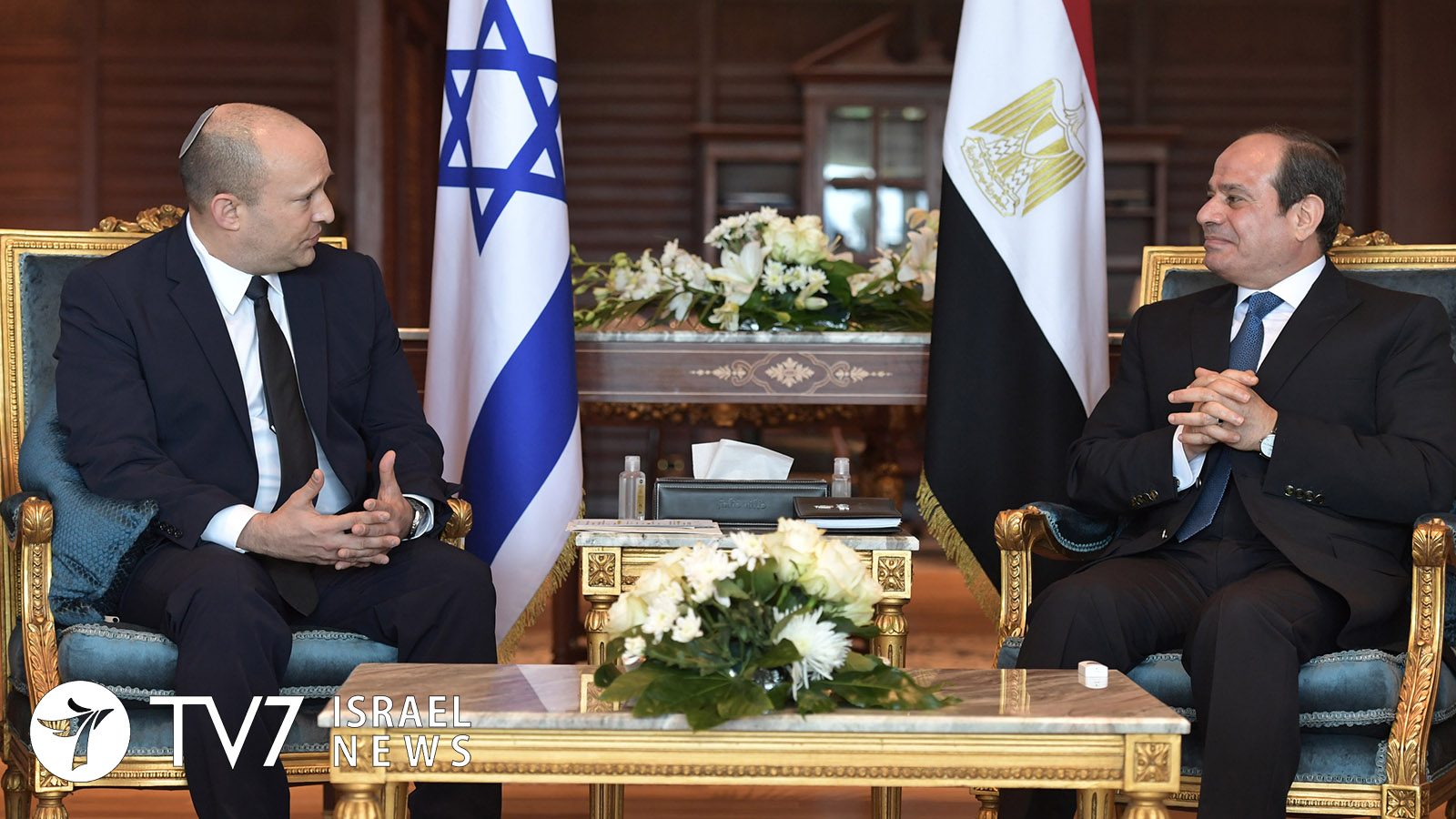Israeli Prime Minister Naftali Bennett met Egyptian President Abdel Fattah al-Sisi held the first official talks between Jerusalem and Cairo for a decade.
By Erin Viner
According to a statement obtained by TV7 from the premier’s media advisor, the two leaders discussed a “long series of issues, including ways to deepen and strengthen bilateral cooperation, with emphasis on widening the scope of reciprocal trade, as well as a long series of regional and international issues.”
Bennett, who took office in June, thanked Sisi for the warm hospitality in the Egyptian Red Sea resort of Sharm el-Sheikh. The Egyptian President invited Bennett to visit last month.
Cairo has played a prominent role brokering and trying to reinforce the ceasefire in Gaza after the 11-day Operation Guardian of the Walls conflict in May between Israel and Palestinian terror factions in the enclave, including its Islamist Hamas rulers.
During the discussions, Sisi cited the Arab Republic’s efforts to maintain calm in the Palestinian territories and the importance of international support for rebuilding efforts in Gaza, according to an Egyptian presidential statement.
The recent surge in cross-border violence since late August has tested the fragile truce. Over the past week, the firing of rockets by Palestinian terrorists in Gaza at Israel for three consecutive nights drew prompt IDF air strikes in reprisal.
Sisi’s presidential statement said that he also “affirmed Egypt’s support for all efforts to achieve comprehensive peace in the Middle East, according to the Two-State Solution” to the Israeli-Palestinian conflict. The peace process between the sides collapsed in 2014. While most analysts believe there is currently little prospect of reviving those efforts, the Saudi Arabia Al-Arabiya media conglomerate reported that Sisi offered to host an international peace conference to bring the sides back to negotiations.
Bennett, the head of the nationalist Yamina political party who leads a diverse cross-partisan coalition, is opposed Palestinian statehood. So far, the Israeli government under his leadership has focused on policies to improve economic conditions in the Palestinian territories.
Both Israel and Egypt enforce a blockade on their borders with the lawless Gaza Strip to prevent the smuggling of contraband to Hamas terrorists.
Egypt was the first Arab country to sign a peace treaty with Israel in 1979, and brokering of the Gaza truce facilitated the reassertion its diplomatic role in the region following the signing of normalization deals by four more Arab states with Israel last year.
Other topics under discussion by the two leaders included Iran’s influence in the Middle East and the crisis in Lebanon, said diplomats and security sources.
“The meeting was very important and very good,” Bennett said of his first visit with Sisi, underscoring that, “First and foremost, we created a foundation for deep ties in the future.”
“We discussed a series of issues in the diplomatic, security and economic spheres, as well as ways to deepen ties and strengthen the interests of our countries,” said the Premier, adding that, “Israel is increasingly opening up to the countries of the region, and the basis of this longstanding recognition is the peace between Israel and Egypt. Therefore, on both sides we must invest in strengthening this link, and we have done so today.”
Israeli Foreign Minister and Alternate Premier Yair Lapid congratulated Prime Minister Bennett for “a very important and successful meeting with Egyptian President al-Sisi” in a Facebook post, stressing that “The relations between israel and Egypt are a strategic asset to our national security.”
The last official visit by an Israeli prime minister to Egypt was in January 2011 when Benjamin Netanyahu met former Egyptian President Hosni Mubarak in Sharm el-Sheikh, just prior to the Arab Spring uprising that toppled Mubarak from office.
